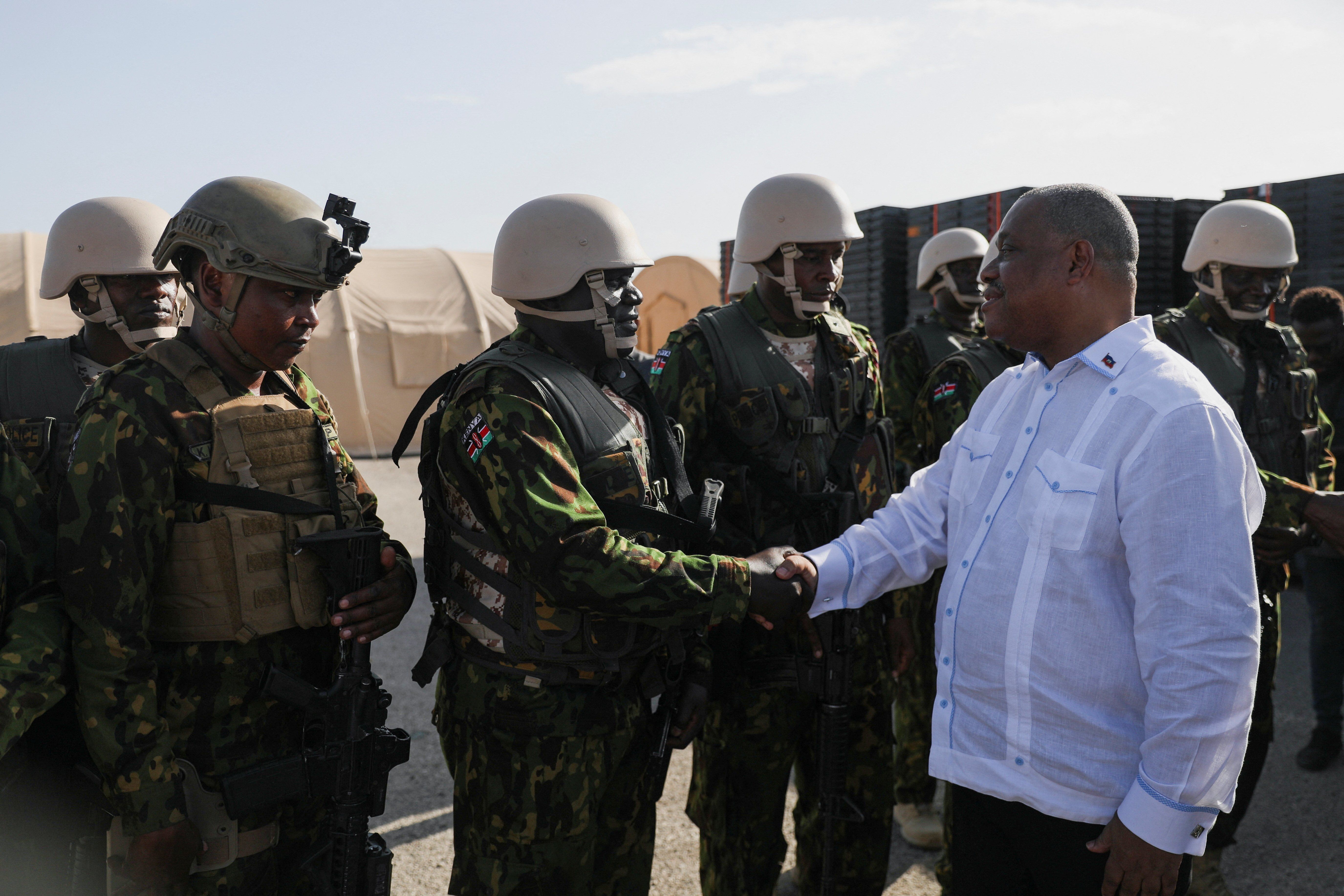On Tuesday, Haiti’s interim Prime Minister Garry Conillevisited the country’s largest hospital in the capital city of Port-au-Prince to celebrate taking it back from armed gangs on Sunday.
Haiti has been engulfed in deadly gang violence since the assassination of President Jovenel Moïse in July 2021. Since then, over 200 armed gangs formed large alliances that brought Haiti to a state of anarchy, with intensifying violence that eventually forced former Prime Minister Ariel Henry’s resignation this spring. Coordinated gang attacks in February — strategically timed to occur while Henry was overseas — seized control of harbors and airports, effectively cutting the country off from the world.
Conille, a former doctor himself, described the hospital as a “war zone” that had been left inoperable by the violence. In recent months, gangs have taken control of 80% of the capital and driven Haiti’s already weak health system to the brink of collapse.
The Haitian government’s reclamation of this hospital, expected to be back in full service by February 2026, is a rare victory for Haiti and an early success for the UN-backed, Kenyan-led police mission that has been fighting on the ground since it deployed on June 25.
What’s next? Can Haitians with the help of their Kenyan allies hold the territory they’ve retaken while also ingratiating themselves with ordinary people who have endured years of violence and scarcity? If they can win back territory without losing hearts and minds, they may create a window to begin the long road to recovery.
